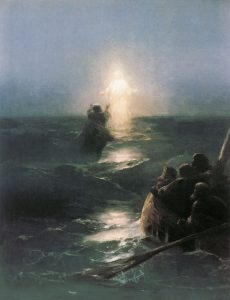
Recently, while watching our favorite apoplectic antimythicist discuss “The Case of the Historical Jesus,” something the Clarence L. Goodwin Chair in New Testament Language and Literature said caught my ear. Here’s what he said:
Historians tend to discount miracle claims and those kinds of things right off the bat, because even if they were to investigate them, the things that people call miracles tend to be things that are inherently improbable . . . But talking about things like walking on water, turning water into wine — most historians won’t even bother discussing those things, because the most a historian ever does is say something is probable. And a historian is never going to tell you that something inherently improbable is probable. And so those kinds of things can be set aside from the outset. (James McGrath, 2016)
Actually, two things drew my attention here. The first is the term inherently improbable, and the second is the claim that historians set aside miracle claims.
Inherently improbable
If you search among books, articles, and academic papers, you’ll find the term inherently improbable used quite frequently in the sciences, liberal arts, religious studies, and the law. But in philosophy (especially logic), you’ll also find people writing about it with some ambivalence.
What exactly do we mean by inherent probability? In his book, Acceptable Premises: An Epistemic Approach to an Informal Logic Problem, James Freeman cites John Nolt’s definition. Continue reading ““In Most Worlds, You Don’t Even Exist” — Miracles and Probability”
